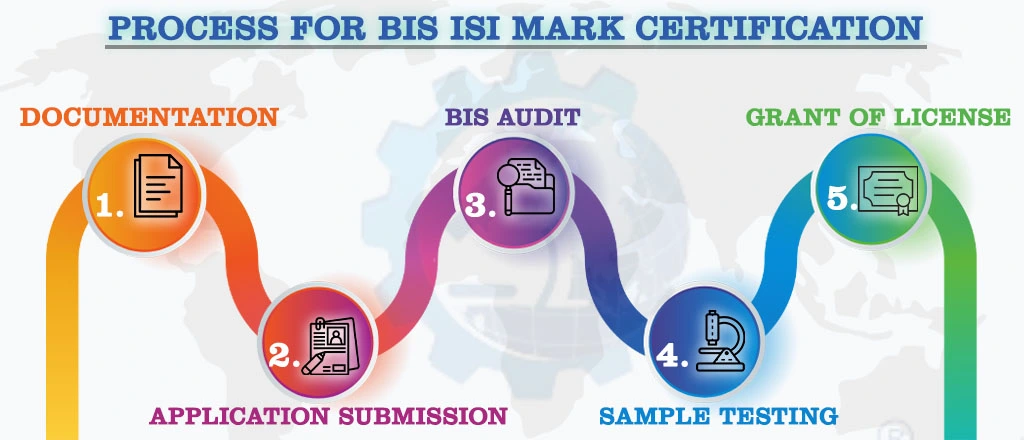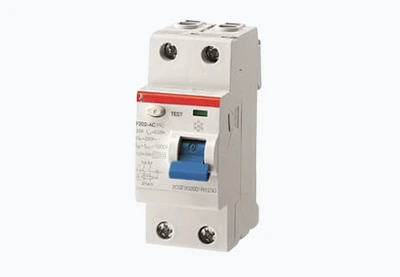BIS CERTIFICATION FOR RESIDUAL CURRENT OPERATED CIRCUIT BREAKERS
IS 12640(PART 2):2016/IEC 61009-1:2012
In this competitive scenario, it isn't easy to survive in the market without a standard quality and certified product. BIS license may also be required to sell products in the Indian market.
To get BIS certification and produce a standard quality product, the manufacturer must ensure that their product must follow the specified Indian standard.
Let's take a closer look at IS 12640(Part 2):2016/IEC 61009-1:2012 Residual Current Operated Circuit Breakers.
This Standard applies to residual current operated circuit-breakers with integral overcurrent protection that is functionally independent of or functionally dependent on line voltage for household and similar uses with rated voltages not exceeding 440 V a.c., rated currents not exceeding 125 A, and rated short-circuit capacities not exceeding 25000 A for operation at 50 Hz or 60 Hz.
This standard applies to devices that perform the functions of detecting residual current, comparing the value of this current with the residual operating value, opening the protected circuit when the residual current exceeds this value, as well as making, carrying, and breaking overcurrents under specified conditions.
These devices are intended to protect people from indirect contact by connecting the exposed conductive parts of the installation to an appropriate earth electrode, as well as to protect the wiring installations of buildings and similar applications from overcurrents. They can be used to protect against fire hazards caused by a persistent earth fault current without requiring the overcurrent protective device to be activated. RCBOs with a rated residual operating current of less than 30 mA is also used as an additional safeguard if the protective means against electric shock fail.
RCBOS must be designed and built in such a way that their normal use is safe and does not endanger the user or the environment. The residual current detection and release must be located between RCBO's incoming and outgoing terminals. External interventions other than those specifically intended to change the setting of the residual operating current shall not be permitted to alter the operating characteristics of the RCBO.
The tests specified in the standard are used to ensure that all compliance is met. RCBO shall not sustain damage that impairs its functions or its safe use. The operating characteristics of RCBOS under residual current or overcurrent conditions must meet standard requirements.
Tests
Tests shall be carried out in accordance with the standard.
- Tripping Test
- Electric Strength Test
- Performance of the test device
- Reliability of screws, current-carrying parts, and connections
- Reliability of terminals for external conductors
- Protection against electric shock
- Clearance & Creepage distance
- Trip-free mechanism
Marking:
Marking shall be done as per IS 12640 (Part2):2016. Manufacturers must obtain a BIS license from the Bureau of Indian Standards to use a standard mark (ISI Mark). The Bureau grants a license based on a successful assessment of manufacturing infrastructure, production process, and quality control and testing capabilities during a visit to its manufacturing premises.

NOTE:
For Detailed Information about the Procedure for BIS ISI Certification
Visit :
• ISI Mark Certification for Domestic Manufacturers• ISI Mark Certification for Foreign Manufacturers
Conclusion:
If a product falls under the scope of the BIS Conformity Assessment Scheme, All the manufacturers, importers, and foreign entities must obtain BIS ISI Certification. The Bureau may cancel the License if the product fails to meet certification requirements.
Aleph INDIA has been serving the industry as a single-window operator for all product regulatory compliance. We can assist importers or manufacturers in meeting all criteria for importing or selling a product in the Indian market.
International Audits & Participation
Testimonials
BIS REGISTRATION FOR ELECTRONIC & IT PRODUCT
In the era of globalization, world trade is growing rapidly and henceforth, Manufacturing and Import/Export businesses are also growing drastically...View More
BIS CERTIFICATE FOR FOREIGN MANUFACTURER
The Economy of India-the fastest developing economy on the globe with the capabilities that help it matches up with the biggest international...View More
PRODUCT CERTIFICATION SCHEME (ISI MARK) FOR DOMESTIC MANUFACTURERS
Anything a person buys from food to cars, clothes to electronics, branded to unnamed products there is always a question that wanders in one’s...View More
WIRELESS PLANNING AND COORDINATION (WPC)
WPC: Wireless means communication done from one point to another point without the wires and cables. Electromagnetic waves carry the ...View More
BUREAU OF ENERGY EFFICIENCY (BEE) CERTIFICATE
BEE CERTIFICATE: Energy is the future, and its conservation is the way of the bright future. Everyone claims the environment is important...View More
E-WASTE MANAGEMENT
E-waste is one of the world's fastest-growing trash streams. We currently manufacture almost 50 million tones of it each year...View More
Request a call back.
Would you like to speak to one of our Senior Technical advisers over the phone? Just submit your details and we’ll be in touch shortly. You can also email us if you would prefer.
BIS REGISTRATION FOR ELECTRONIC & IT PRODUCT
In the era of globalization, world trade is growing rapidly and henceforth, Manufacturing and Import/Export businesses are also growing drastically...View More
BIS CERTIFICATE FOR FOREIGN MANUFACTURER
The Economy of India-the fastest developing economy on the globe with the capabilities that help it matches up with the biggest international...View More
PRODUCT CERTIFICATION SCHEME (ISI MARK) FOR DOMESTIC MANUFACTURERS
Anything a person buys from food to cars, clothes to electronics, branded to unnamed products there is always a question that wanders in one’s...View More
WIRELESS PLANNING AND COORDINATION (WPC)
WPC: Wireless means communication done from one point to another point without the wires and cables. Electromagnetic waves carry the ...View More
BUREAU OF ENERGY EFFICIENCY (BEE) CERTIFICATE
BEE CERTIFICATE: Energy is the future, and its conservation is the way of the bright future. Everyone claims the environment is important...View More
E-WASTE MANAGEMENT
E-waste is one of the world's fastest-growing trash streams. We currently manufacture almost 50 million tones of it each year...View More
View All Services
Request a call back.
Would you like to speak to one of our Senior Technical advisers over the phone? Just submit your details and we’ll be in touch shortly. You can also email us if you would prefer.






























